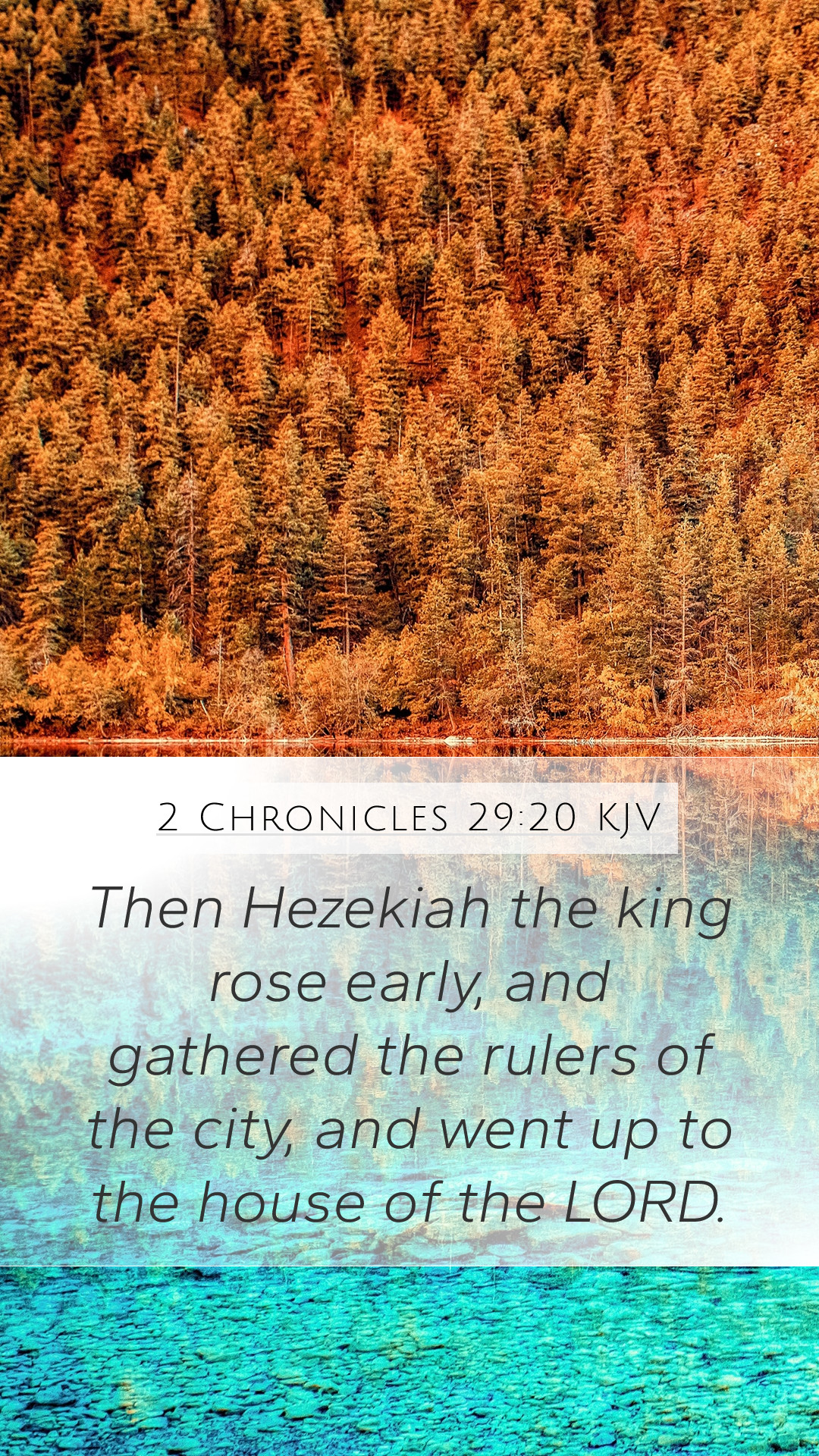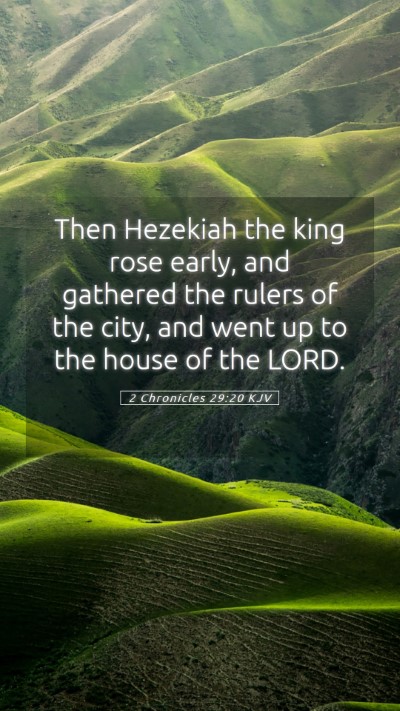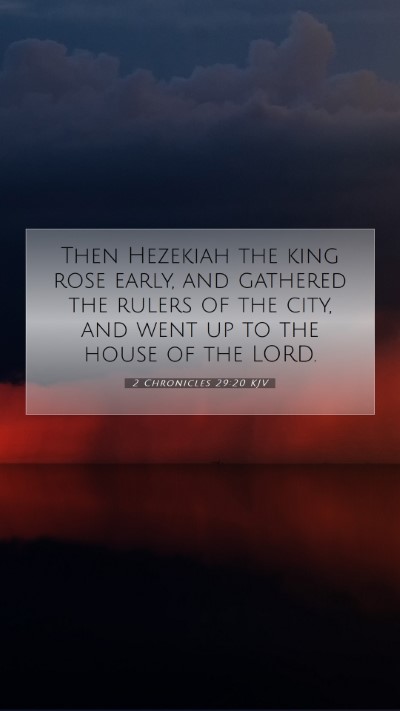Understanding 2 Chronicles 29:20
Verse: "Then Hezekiah the king rose early, and gathered the rulers of the city, and went up to the house of the LORD." (2 Chronicles 29:20)
This verse captures a critical moment in the reign of King Hezekiah, illustrating his commitment to restoring the worship of Yahweh in Israel after a period of neglect and idolatry. Below is a combined commentary of insights from public domain sources that shed light on the meaning, significance, and application of this passage.
Bible Verse Meanings
Hezekiah’s actions reflect his role as a reformer king who prioritized the spiritual health of his nation. Early in the morning indicates his urgency and swift action in the pursuit of God's favor. This indicates several important themes:
- Leadership and Accountability: Hezekiah’s initiative showcases the responsibility of leaders in guiding their people back to proper worship and obedience to God.
- Restoration of Worship: Gathering the rulers signifies the communal aspect of worship and the importance of collective participation in the revival of faith.
- Divine Relationship: Ascending to the house of the LORD signifies a return to divine fellowship and reverence towards God’s dwelling among His people.
Scripture Analysis
This act of gathering the rulers can be viewed in light of the biblical precedent for communal worship and leadership. Hezekiah was not merely acting on personal conviction; he was rallying others to join in a renewed covenant with God. Insights from various commentaries elucidate the broader implications:
- Matthew Henry: Emphasizes the necessity of early and energetic efforts in spiritual matters, demonstrating that procrastination can have detrimental effects on worship and holiness.
- Albert Barnes: Notes the significance of Hezekiah gathering the rulers, which reflects the understanding that leaders influence the spiritual course of their nations.
- Adam Clarke: Highlights that this moment represents a pivotal point in Israel’s history, underscoring the importance of right actions for the sanctification of the temple and the people.
Biblical Exegesis
Understanding this verse requires examining the historical and spiritual context of Hezekiah's reforms. It signifies a time when Judah was seeking restoration after a prolonged period of disobedience under King Ahaz. The reform initiated in this chapter echoes themes of repentance and return to God:
- Historical Context: This event occurs after years of idol worship and neglect of the temple, necessitating a profound transformation.
- Spiritual Renewal: The initiative taken by Hezekiah is not merely administrative; it is an act of faith seeking divine restoration and forgiveness.
Application of 2 Chronicles 29:20
In applying this scripture to modern life, several lessons can be gleaned:
- Personal Revival: Believers are encouraged to seek spiritual renewal and to take immediate steps towards deepening their relationship with God.
- Community Engagement: The importance of gathering fellow believers for worship and mutual encouragement in faith is evident.
- Leadership Responsibility: Those in positions of leadership should recognize their influence in guiding others toward spiritual truth and integrity.
Conclusion
2 Chronicles 29:20 serves as a powerful reminder of the urgency of returning to God, the responsibility of leaders, and the communal aspect of worship. Engaging with these themes can enhance understanding of Scripture and inspire conducive spiritual practices in contemporary settings.
Related Bible Cross References
- 2 Kings 18:1-3: Hezekiah's ascendance and reforms parallel the narrative of his leadership efforts.
- 2 Chronicles 30:1: The invitation to the people to celebrate Passover indicates the continuing process of revival initiated by Hezekiah.
- Isaiah 38:1-2: Offers personal insight into Hezekiah’s relationship with God, underscoring his earnestness in seeking divine guidance.


